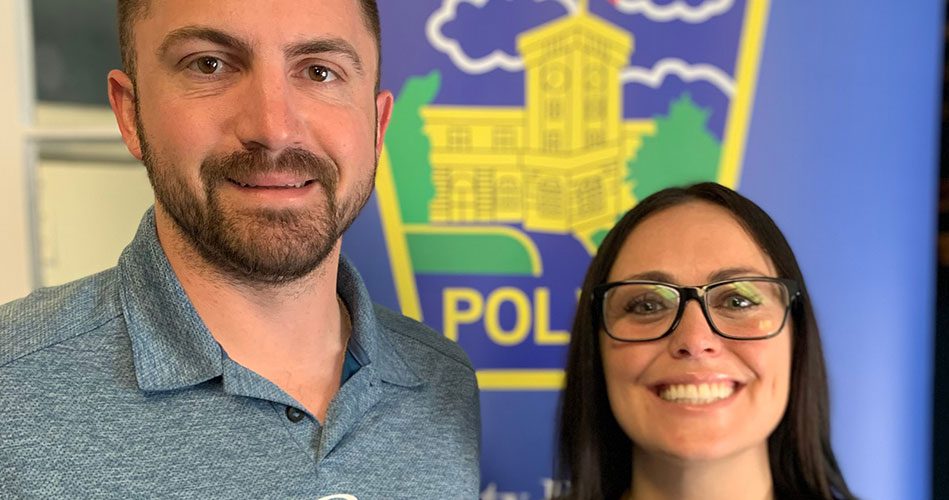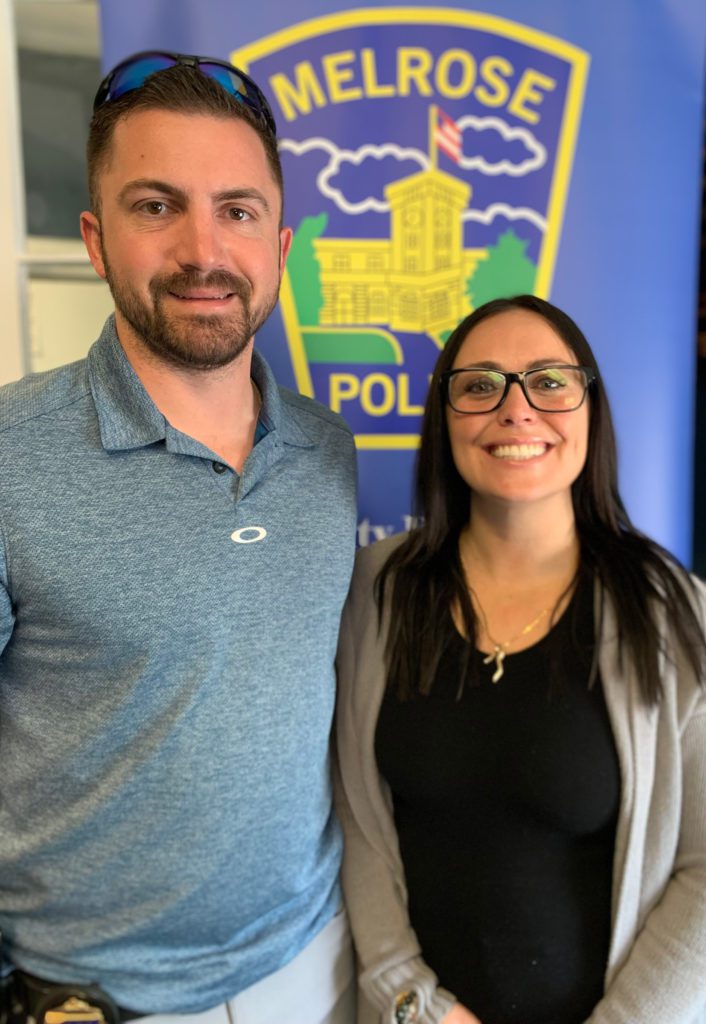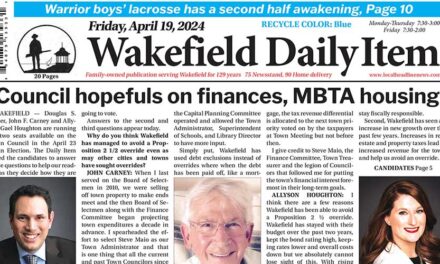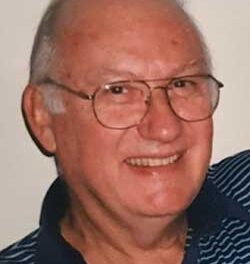MELROSE — Chief Kevin M. Faller reports that the Melrose Police Department has added a mental health detective to oversee incidents involving substance use disorder and mental health issues and now shares a co-response clinician with Stoneham Police.
Mental Health Detective Daniel Riordan will be the primary point of contact with clinician Danielle Visone, who is now working as a co-response mental health clinician with Melrose and Stoneham Police, thanks to grant funding from the Department of Mental Health. Detective Riordan also will review patrol reports and follow up on calls involving mental health issues and substance use disorder.
Detective Riordan and Clinician Visone will respond in-person to calls for service involving mental health or substance misuse disorder whenever possible and will also offer follow-up care and community resources to those who have been involved in incidents.
“We’ve seen a revolving door of people making suicidal statements and we often see them getting out of the hospital in just a few hours,” said Detective Riordan, explaining the need to offer more resources.
Melrose Police hope this outreach will limit repeat trips to emergency rooms and unnecessary arrests.
Visone, who works with Eliot Community Human Service and has a master’s degree in Education and Mental Health Counseling, worked previously with the Lynn Police Behavioral Health Unit.
Visone works to steer those with substance use issues toward treatment and works with Outreach Recovery Coordinator Tracy Rizzo, also of Eliot Community Human Service, to do so, while also steering individuals toward community resources that can help with homelessness, food insecurity and other issues.
“I just like helping people,” Visone said. “I just always was that person who people could talk to. I’ve had my own struggles in life too, so now that I’m on the other side of that I can help people see there’s a better way, connect them with resources and help them feel safe. It’s important to meet people where they are at without judgment and to have compassion. A lot of people are afraid of being judged or are treated poorly when they do get treatment and that pushes them away.”
“Mental health and substance abuse calls are a large majority of the calls we respond to on a daily basis and it is important that we have a program and plan in place to address these issues on several fronts,” said Chief Faller. “We want to make sure that not only are we conducting proper follow up on these calls in order to help those in need, but we also need to have a strong proactive approach as well. Having this partnership with the Department of Mental health through grant funding allows us to co-respond with a trained mental health clinician. The roles and responsibilities of police officers and what is expected of us has changed considerably in my career and it is important that as professionals we adapt and deliver the quality services that members of our community deserve, especially those suffering from mental health and substance abuse.”






